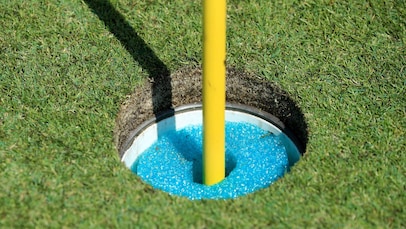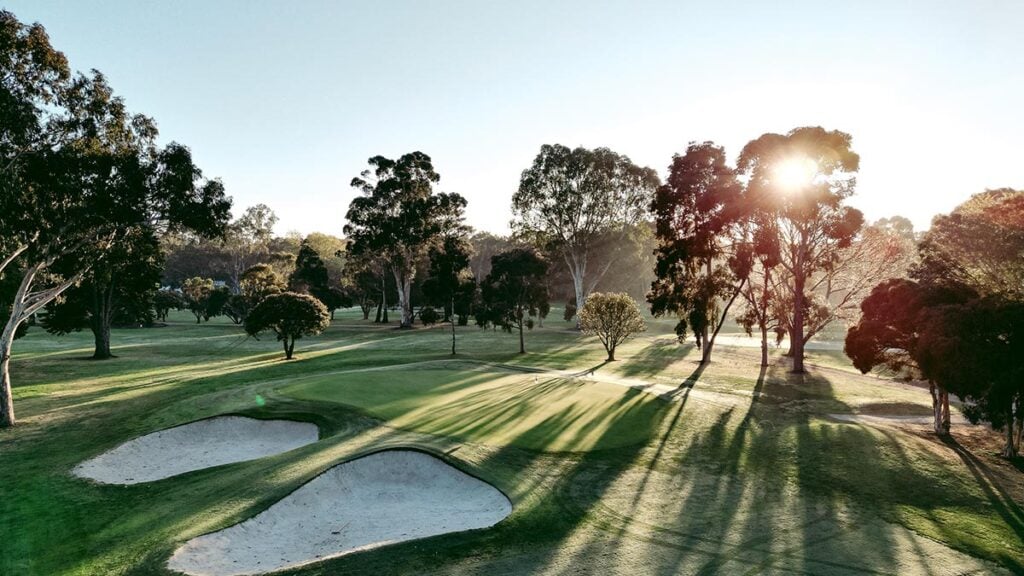The hardest shot in golf, it’s been said, is the shot right after a shank. Because now you’re rattled, the thinking goes, and the memory is still fresh.
The more golf you play, the more bad memories you risk accumulating. This is one of the downsides of experience. At my home course, I could provide an 18-hole tour of different ways I’ve sabotaged golf rounds. Here’s where I snapped two out of bounds. … Over there I somehow hit a chip backward. … I’d rather not talk about that bunker. If bad memories were a reason not to play, I’d have sold my clubs years ago.
Every player has an assortment of demons to exorcise, even the best ones. This week, veteran Keith Mitchell reflected on blowing the 54-hole lead at the Valspar Championship with a final-round 77. The collapse was the type of ordeal a tour professional might want to forget—an opportunity, as Ted Lasso might say, to have the short memory of a goldfish. But Mitchell knows that’s not how golf works. Asked how he processed last year’s disappointment to shoot 67 in Thursday’s first round, Mitchell said there was no “processing” that kind of moment, or at least not in the sense one might expect.
“I didn’t. I still think about it,” Mitchell explained. “It’s still definitely in the back of my mind and I want it to stay there for hopefully for the rest of my career to just motivate me to remember what it feels like when you let those kind of nerves get in your way. So processing it, I guess, is something that I want to keep to always have it in the memory banks, like this is what not to do.”
Of all the strategies we might steal from tour players, this should go near the top. The misconception about your worst golf moments is you should try to flush them away, lest they start taking on outsized importance in your mind. The sports psychologist Bhrett McCabe, who works with a number of tour players and professional sports teams, says that’s an even bigger mistake. The more one tries to turn away from these episodes, McCabe says, the more oxygen you give them.
More Low Net  Golf Digest Logo Every practice session ask yourself, am I looking to get ready or get better?
Golf Digest Logo Every practice session ask yourself, am I looking to get ready or get better?  Low Net Your best scores aren’t what matters
Low Net Your best scores aren’t what matters  First Person But what was the point of the pool noodles?
First Person But what was the point of the pool noodles?
“You can never forget an emotion,” McCabe says. “You can never let go of a bad shot. It’s the worst advice you can give a player. It creates an impact. It creates a ripple effect.”
In the same way you might study a bad shot to understand what you did wrong so you won’t repeat it, McCabe advises paying attention to how specific thoughts or memories resonate so you can develop a game plan for what to do next. It’s what Mitchell did on Thursday, and it’s how he turned a difficult memory into something he could use.
“It’s not about calming it down,” McCabe says. “It’s about directing it towards something you can be aggressive with.”
This article was originally published on golfdigest.com




